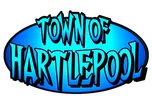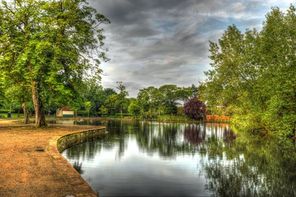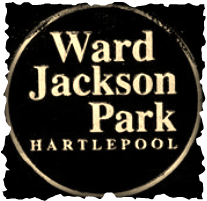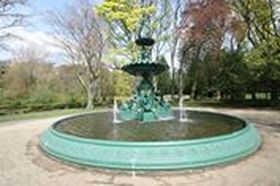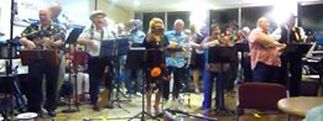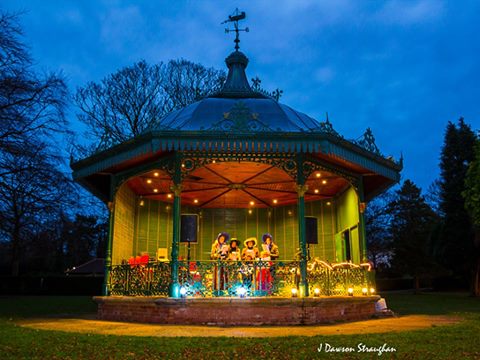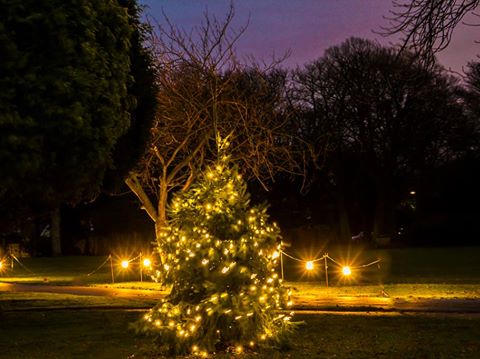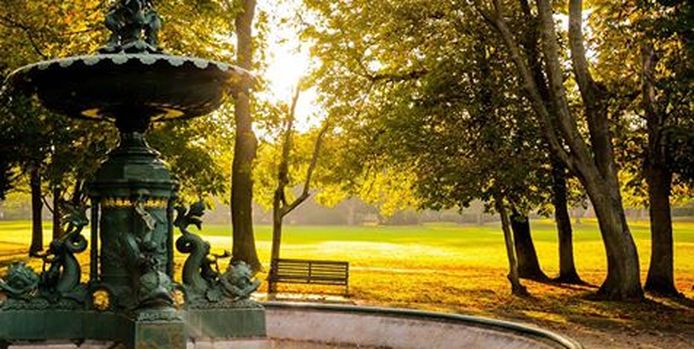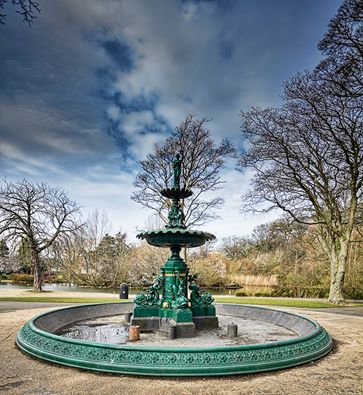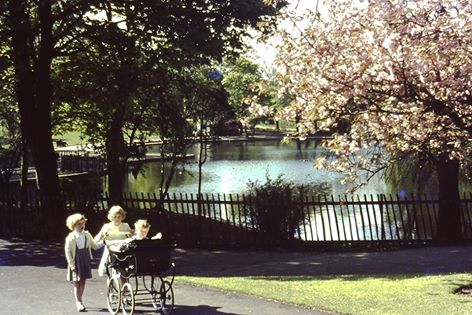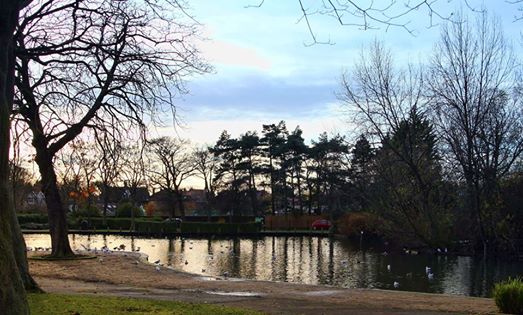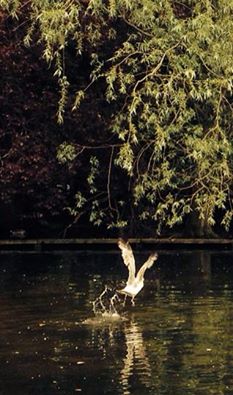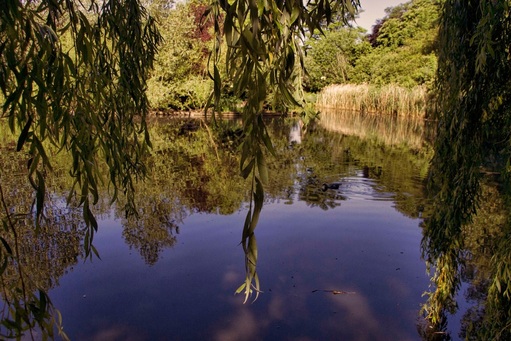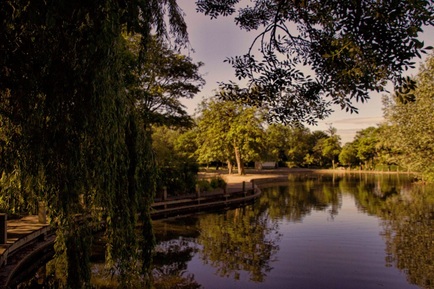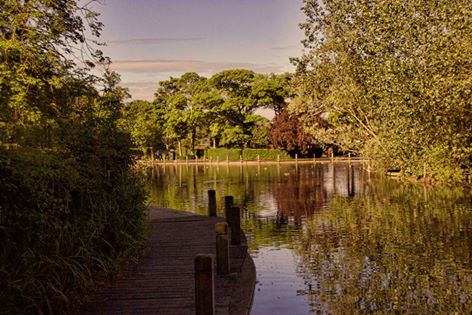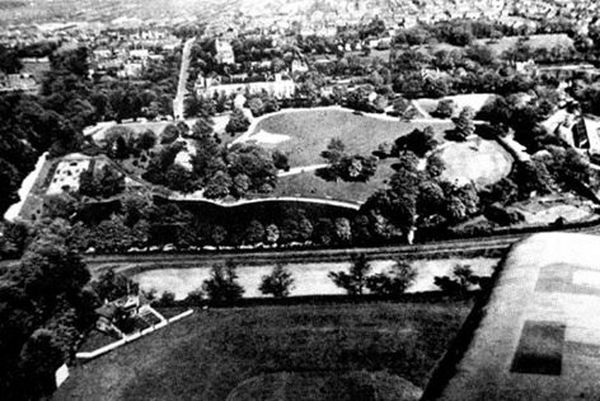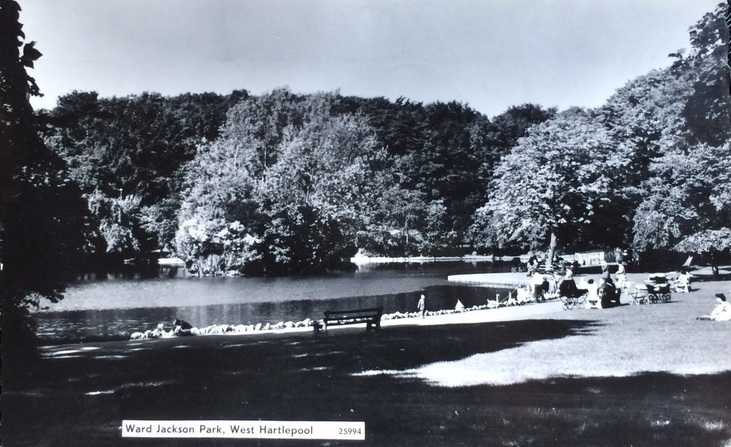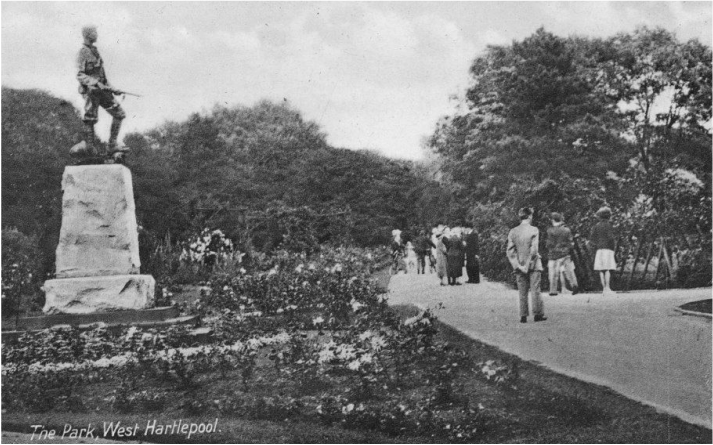Elwick Road
Hartlepool
TS24 7LE
Friends of Ward Jackson Park
Registered Charity 1085091
Facebook:- https://www.facebook.com/WardJacksonParkHartlepool
Twitter:- https://twitter.com/friendsofwjp
Flickr:- https://www.flickr.com/groups/2514919@N23/
Website:- http://friendsofwardjacksonpark.moonfruit.com/
Telephone:- 07542 200175
Description
Ward Jackson Park is one of the most original in the North East region and is listed in the National Register of Historic Parks & Gardens because of its collection of Victorian and Edwardian features. A project to restore and develop the park was completed in 2001 returning the park to its original splendour complete with a magnificent lake set in a Victorian landscape.
For the more wild at heart, why not visit the Woodland Walk to enjoy the fascinating wildlife the park has to offer, or the play area which contains plenty of activity stations to occupy the liveliest of children. Complete your day with a visit to The Place in the Park for a well-deserved cuppa and a snack.
The Friends of Ward Jackson Park organise a range of brilliant events and activities and raise funds for their own Park projects. For information regarding Friends of Ward Jackson Park please email [email protected]
Ward Jackson Park is located at the junction of Park Avenue and Elwick Road
History Of The Ward Jackson Park
As a thing of beauty and joy forever the new park at Tunstall will serve to keep the name Ralph Ward Jackson green in the memories of successive generations of Hartlepool folk A quote from an 1883 Local Newspaper
Ralph Ward Jackson (1806 - 1880)
Ralph Ward Jackson was born on the 7th June 1806, the third son of nine children born to William Ward Jackson and his wife Susannah and they all lived at Normanby Hall near Stockton, England. The family came of prosperous merchant stock and dated back to an ancestor who had been knighted by James 1. They were an enterprising and adventurous family; Port Jackson in Australia is named after one of them. Ralph was educated at Rugby and decided to become a solicitor.
At the age of sixteen he commenced study of law at Preston in Lancashire. After his first year he took over the management of the conveyancing department of a large solicitors and remained there for four years.
In 1829 a Mr Joseph Brown took him into partnership and in the same year he married Susannah Swainson. In 1838 he and others in the banking world decided to extend and connect the Clarence Coal Railway with the old port of Hartlepool. Ralph made the decision to start a dock and harbour at West Hartlepool. It was said that if it had not been for the obstructive attitude of the Hartlepool Dock and Railway Company, which discouraged the shipping of coal from new districts by other railways in their dock, the independent port of West Hartlepool would not have been created.
In 1846 he was urged to become managing director of the West Hartlepool harbour and docks undertaking then in course of construction and in 1848 he became managing director of the Stockton and Hartlepool Railway. In 1847 the harbour was opened. The following year a second dock was opened and a year later Jackson applied for a Town Improvement Commission, to govern the port.
In 1854 he was elected the first Improvement Commissioner and later was elected first Chairman of the Board. He was supreme on the Board of Directors and to encourage trade they invested their capital in collieries and to dispose of their coal they bought a fleet of steamers and when they were short of capital they borrowed money. Hartlepool became a prosperous port. Unfortunately a Benjamin Coleman brought about Ralph Ward Jackson's downfall by calling for an investigation into Jackson's operations, which were beyond the limits of their authorisation.
He was dispossessed of his authority, to the indignation of the people. Later the people showed their appreciation of him by electing him as their first member of parliament, a post he held for six years.
He died on the 6th august 1880 age 75 years at 9 St Albion Street, Hyde Park. Before his death there had been a suggestion among his friends and supporters in West Hartlepool that an annuity be provided for him as considerable sums of money had been promised. When Ralph died, a circular was sent to the subscribers for suggestions to create something in his memory. Thomas Furness suggested a memorial park and this proved to be the most popular idea.
Land was purchased, work on the park commenced and on the 11th July 1883 The Ward Jackson Memorial Park was formally and ceremoniously opened to the public. The park is known today as Ward Jackson Park. In 1997 the park was restored to its former Victorian glory and remains today a place for recreation as well as a lasting memory to the father of West Hartlepool. Ralph Ward Jackson's legacy remains clearly visible in the successful and thriving town we know today as Hartlepool.
Hartlepool
TS24 7LE
Friends of Ward Jackson Park
Registered Charity 1085091
Facebook:- https://www.facebook.com/WardJacksonParkHartlepool
Twitter:- https://twitter.com/friendsofwjp
Flickr:- https://www.flickr.com/groups/2514919@N23/
Website:- http://friendsofwardjacksonpark.moonfruit.com/
Telephone:- 07542 200175
Description
Ward Jackson Park is one of the most original in the North East region and is listed in the National Register of Historic Parks & Gardens because of its collection of Victorian and Edwardian features. A project to restore and develop the park was completed in 2001 returning the park to its original splendour complete with a magnificent lake set in a Victorian landscape.
For the more wild at heart, why not visit the Woodland Walk to enjoy the fascinating wildlife the park has to offer, or the play area which contains plenty of activity stations to occupy the liveliest of children. Complete your day with a visit to The Place in the Park for a well-deserved cuppa and a snack.
The Friends of Ward Jackson Park organise a range of brilliant events and activities and raise funds for their own Park projects. For information regarding Friends of Ward Jackson Park please email [email protected]
Ward Jackson Park is located at the junction of Park Avenue and Elwick Road
History Of The Ward Jackson Park
As a thing of beauty and joy forever the new park at Tunstall will serve to keep the name Ralph Ward Jackson green in the memories of successive generations of Hartlepool folk A quote from an 1883 Local Newspaper
Ralph Ward Jackson (1806 - 1880)
Ralph Ward Jackson was born on the 7th June 1806, the third son of nine children born to William Ward Jackson and his wife Susannah and they all lived at Normanby Hall near Stockton, England. The family came of prosperous merchant stock and dated back to an ancestor who had been knighted by James 1. They were an enterprising and adventurous family; Port Jackson in Australia is named after one of them. Ralph was educated at Rugby and decided to become a solicitor.
At the age of sixteen he commenced study of law at Preston in Lancashire. After his first year he took over the management of the conveyancing department of a large solicitors and remained there for four years.
In 1829 a Mr Joseph Brown took him into partnership and in the same year he married Susannah Swainson. In 1838 he and others in the banking world decided to extend and connect the Clarence Coal Railway with the old port of Hartlepool. Ralph made the decision to start a dock and harbour at West Hartlepool. It was said that if it had not been for the obstructive attitude of the Hartlepool Dock and Railway Company, which discouraged the shipping of coal from new districts by other railways in their dock, the independent port of West Hartlepool would not have been created.
In 1846 he was urged to become managing director of the West Hartlepool harbour and docks undertaking then in course of construction and in 1848 he became managing director of the Stockton and Hartlepool Railway. In 1847 the harbour was opened. The following year a second dock was opened and a year later Jackson applied for a Town Improvement Commission, to govern the port.
In 1854 he was elected the first Improvement Commissioner and later was elected first Chairman of the Board. He was supreme on the Board of Directors and to encourage trade they invested their capital in collieries and to dispose of their coal they bought a fleet of steamers and when they were short of capital they borrowed money. Hartlepool became a prosperous port. Unfortunately a Benjamin Coleman brought about Ralph Ward Jackson's downfall by calling for an investigation into Jackson's operations, which were beyond the limits of their authorisation.
He was dispossessed of his authority, to the indignation of the people. Later the people showed their appreciation of him by electing him as their first member of parliament, a post he held for six years.
He died on the 6th august 1880 age 75 years at 9 St Albion Street, Hyde Park. Before his death there had been a suggestion among his friends and supporters in West Hartlepool that an annuity be provided for him as considerable sums of money had been promised. When Ralph died, a circular was sent to the subscribers for suggestions to create something in his memory. Thomas Furness suggested a memorial park and this proved to be the most popular idea.
Land was purchased, work on the park commenced and on the 11th July 1883 The Ward Jackson Memorial Park was formally and ceremoniously opened to the public. The park is known today as Ward Jackson Park. In 1997 the park was restored to its former Victorian glory and remains today a place for recreation as well as a lasting memory to the father of West Hartlepool. Ralph Ward Jackson's legacy remains clearly visible in the successful and thriving town we know today as Hartlepool.
